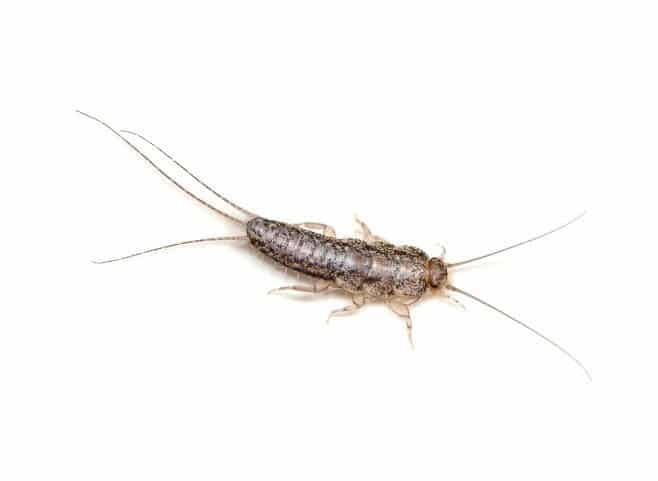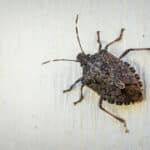Silverfish have found ways to survive for hundreds of millions of years, predating even the dinosaurs. These tenacious insects can keep creating new generations as long as they find the right feeding and environment conditions in which to thrive. In many cases, they find those conditions in homes and commercial buildings.
If you think you might have a silverfish problem, you can benefit from learning more about these odd-looking bugs, and how pest control techniques can keep them under control in your home. Check out the answers to these frequently asked silverfish questions.
What Do Silverfish Look Like?
From a distance, silverfish do indeed resemble tiny, tear-shaped, silver or gray fish. Up close, however, they display some other telltale characteristics such as a three-bristled tail and long, backward-curving antennae. Adult silverfish typically grow 12 to 19 millimeters in length.
What Environmental Conditions Do Silverfish Require?
Silverfish seek warm, humid environments. They thrive in temperatures of 70 to 85 degrees Fahrenheit, a fact that makes many human residences an attractive harbor for their breeding activities. Silverfish egg development also requires humidity of at least 50 to 75 percent, causing the insects to frequent bathrooms, basements, and attics.
How Do Silverfish Infiltrate Homes?
Silverfish often enter homes through the roof. Shake roofs that employ wooden shingles offer an easy point of entry, since the silverfish can eat their way through the cellulose. Once the silverfish penetrate the organic materials of the roof, they can get into the insulation and make their way to the attic or down the walls.
What Do Silverfish Eat?
Silverfish have an appetite for proteins, including the proteins available in dried meats or even the bodies of dead silverfish. When they can’t get proteins, they will feast on starches, sugars, and other carbohydrates. A silverfish infestation can consume everything from paper and fabrics to glue and packaged foods.
Why Should You Eliminate Your Silverfish Problem?
In addition to the natural repulsion you and your house guests may feel for silverfish, these odd-looking insects’ eating habits can lead to considerable destruction around your home. The results may include lost valuable documents, damaged upholstery, ruined books, half-eaten groceries, and holes in your clothes.
Silverfish don’t seem to transfer diseases on the alarming scale of certain other pests. However, their molting activities can set off allergic reactions in susceptible individuals. They may also attract a variety of other pests who might regard them as a food source, multiplying your household pest headaches.
How Do Pest Control Experts Deal With Silverfish?
The approach your pest control expert takes to your silverfish problem may depend on the severity of the infestation. If your home appears littered with molted skin particles, fecal pellets, yellowish fabric stains, and signs of paper destruction, your pest control team may recommend extermination using chemical pesticides.
Two common chemical pesticides used to exterminate silverfish include pyrethrin (the same active ingredient in some pet pest-control collars) and propoxur. Bear in mind that these chemicals kill adult silverfish but do not affect their eggs. You may therefore need to schedule repeated treatments to kill off all the egg-producing adults.
Ask your pest control expert about other methods that you can safely employ between treatments to reduce your silverfish population. Options may include bat traps, sticky traps, boric acid, and diatomaceous earth (a non-toxic crushed rock product that dries out the bodies of insects that come into contact with it.
How Can You Keep Silverfish Away?
You can make your home less hospitable to silverfish. Keep packaged foods in airtight plastic or metal containers. Regularly vacuum any cracks, crevices, and other known silverfish hiding places. Fix any plumbing problems that might contribute to humidity problems, employing a dehumidifier to dry the air further if necessary.
Diam Pest Control can evaluate your silverfish issues, perform any necessary extermination procedures, and help you keep your home silverfish-free going forward. Contact us to schedule an inspection.





